A Danube Delta-based educational camp held in June saw over 50 participants from four countries come together to learn more about Dalmatian pelicans – and the important role that rewilding can play in recovering populations of this iconic bird across Europe.
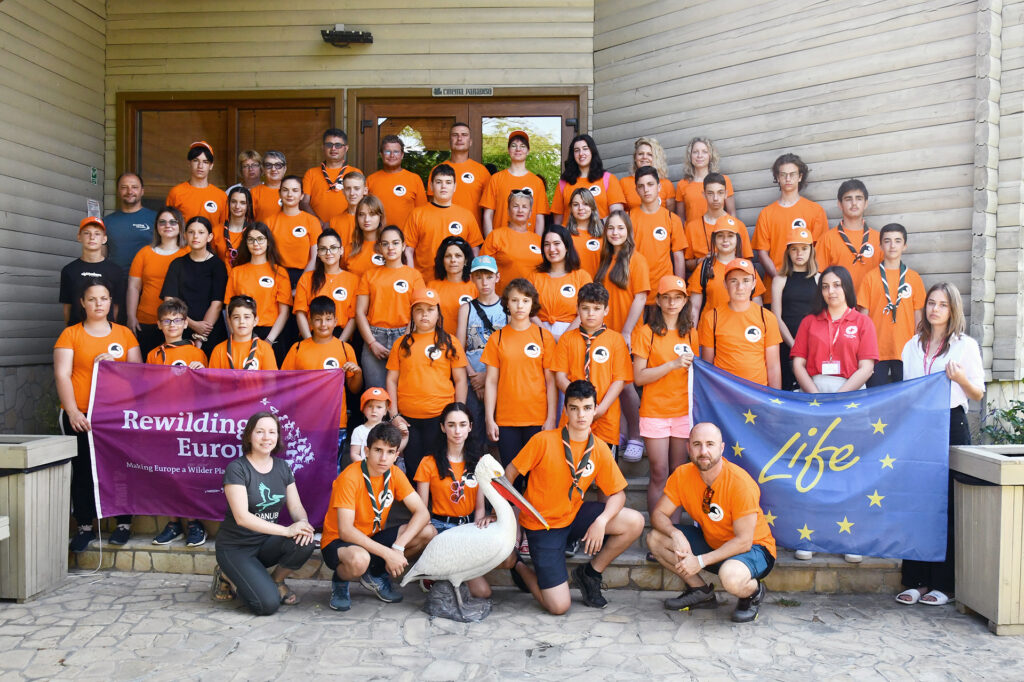
Multi-strand initiative
Coordinated by Rewilding Europe, the Pelican Way of LIFE initiative is a pan-European, multi-partner initiative to boost populations of the Dalmatian pelican along the Black-Sea Mediterranean Flyway, which is home to around 50% of the global population. As part of the initiative, efforts have been carried out to reduce direct mortality from collisions with power lines, enhance nesting conditions, and increase support for the growth of Dalmatian pelican populations across Europe.
To reconnect children with nature – and teach them more about Dalmatian pelicans and rewilding – a Pelican Education Camp was held at the end of June on the Romanian side of the Danube Delta rewilding landscape. A group of 40 secondary school children from Romania, Greece, Bulgaria, and Ukraine were welcomed to the camp, which was based in the traditional Romanian fishing village of Sfantu Gheorghe. The Danube Delta is one of the strongholds of the Dalmatian Pelican – the camp’s wide-ranging and immersive programme saw the children witness these majestic birds in the wild, as well as other iconic delta wildlife. They also learned first-hand about supporting the growth of Europe’s Dalmatian pelican population and the important role that the birds play in healthy wetlands.
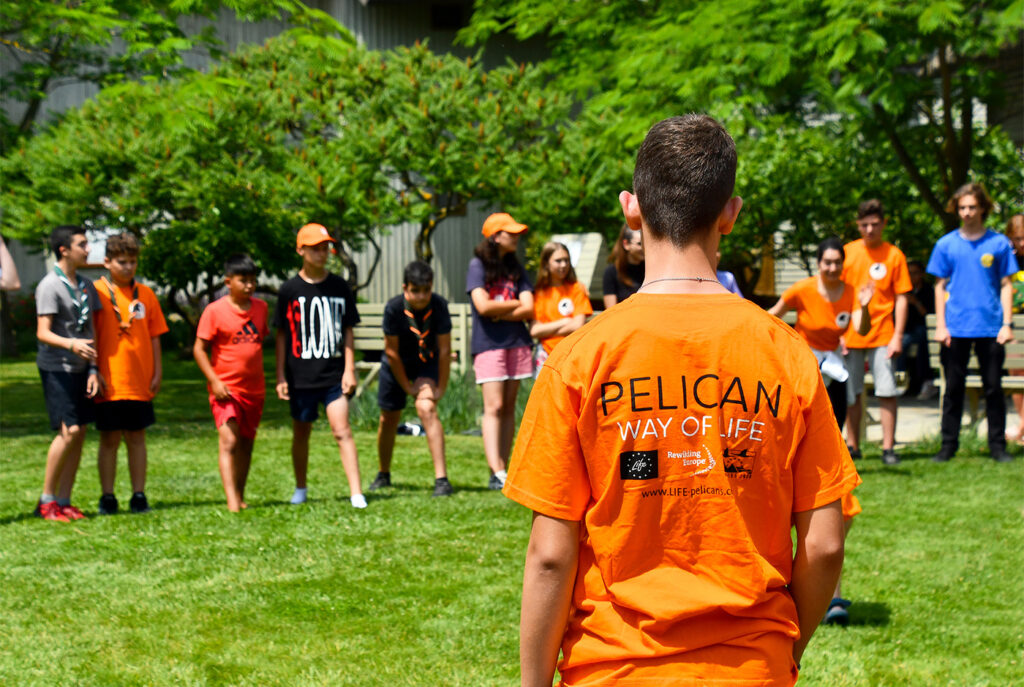
Diverse programme
The children visiting the pelican camp were aged between 12 and 18. They were accompanied by educators from each of the four countries, allowing the latter to gain knowledge and inspiration for similar future events, as well as knowledge and skills related to practical rewilding.
The camp programme was led by conservation practitioners from across Europe. In addition to interactive lectures, wildlife-watching field trips and interesting practical exercises, the children were divided into teams and tasked with investigating threats and opportunities around pelican conservation, introducing concepts such as viable populations, habitats and landscapes. The children gained practical experience and enhanced their presentation, storytelling, language, photography, and information handling skills. At the end of the camp they developed their own rewilding projects and presented them as group theatre plays. They were then encouraged to carry out parts of these projects on their return home.
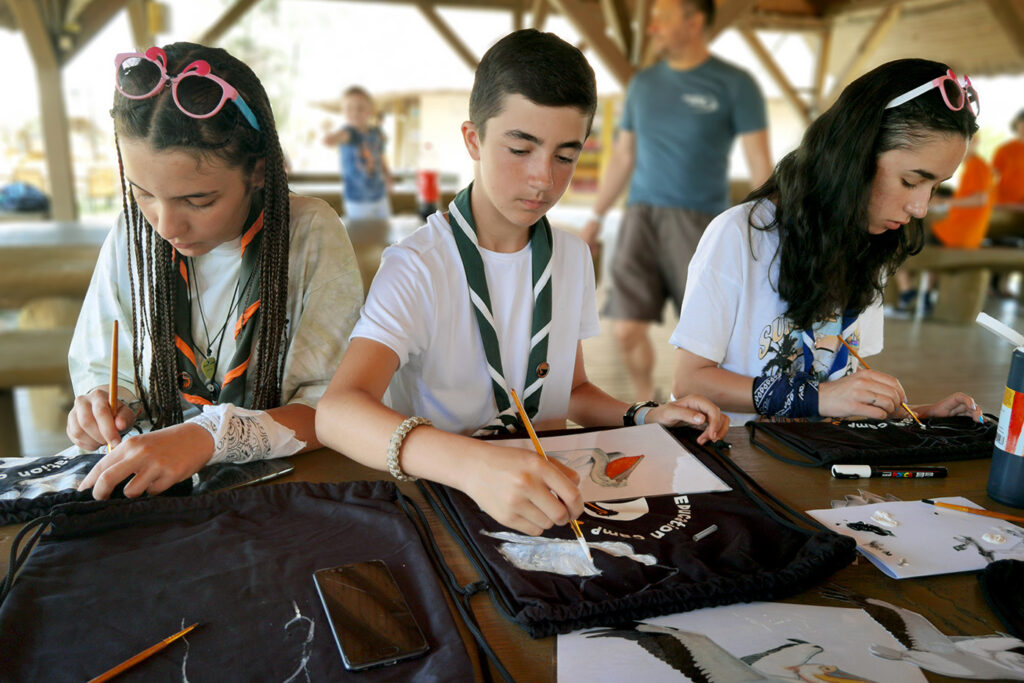
Positive feedback
Feedback from camp participants was overwhelmingly positive.
“It was such a pleasure to take part in this event,” says Kristiyana Ivanova, a Bulgarian student from the town of Belene. “The programme taught me a lot about natural processes and increased my passion for pelicans and pelican conservation.”
“This was my first trip abroad and it was the best experience I have ever had,” says Christos Boukas, a student from Greece. “I learned a lot about birds, particularly pelicans. My favourite experience was touring the delta and seeing the pelicans up close. It made me want to protect them and go birdwatching at home.”
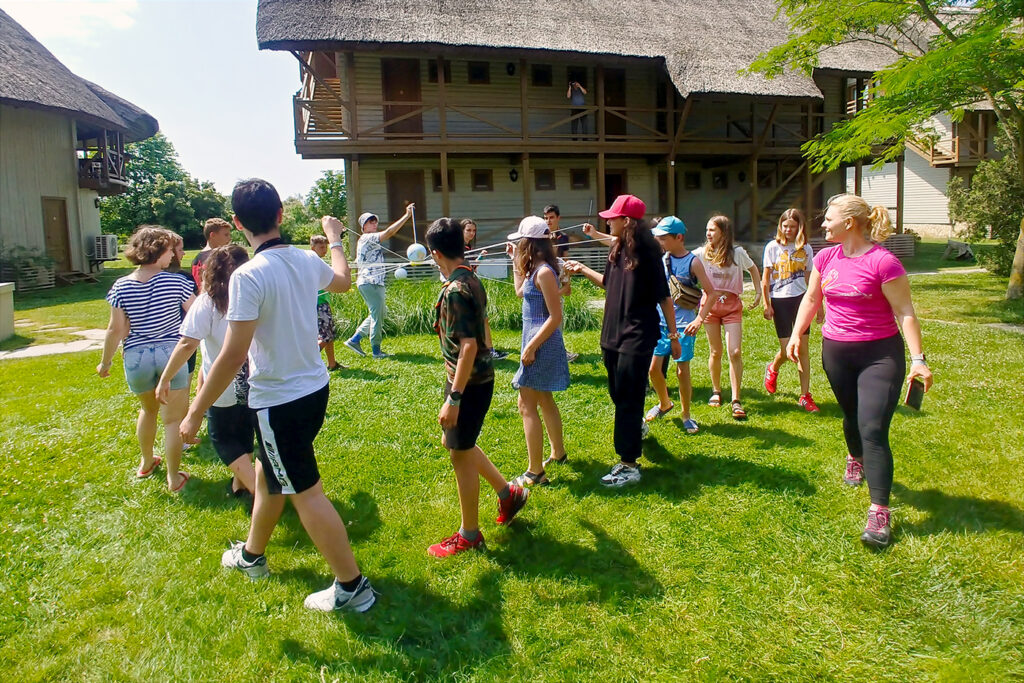
An endangered icon
With a wingspan of almost three metres and weighing in at over 10 kg, the Dalmatian pelican is one of the most impressive breeding birds in Europe. Yet despite its iconic status, it is extremely vulnerable across its entire geographic range, and is classified as “Near Threatened” on the IUCN Red List. While surveys conducted in 2020 indicated that European pelican populations were making a slow recovery, these populations have since been decimated by bird flu. A 2022 survey of Europe’s overall Dalmatian pelican population revealed a 40% decrease compared to 2021, with avian flu thought to be the culprit. With recovery set to take years, a successful 2023 breeding season looks increasingly critical.
The Dalmatian pelican requires access to still, fish-filled waters undisturbed by human activity, with extensive flooded and shallow water areas. Pelican populations in the Danube Delta were hit hard by the construction of a life-sapping web of dykes and agricultural polders between the 1950s and 1980s, which disconnected huge swathes of floodplain from the Danube’s main channels and lakes. This decimated fish stocks and impaired the ability of the river to provide water for drinking and irrigation, and to mitigate flooding. Ongoing efforts by the Rewilding Ukraine team to restore natural water flow in the delta are therefore good news for Dalmatian pelicans as well as local communities.
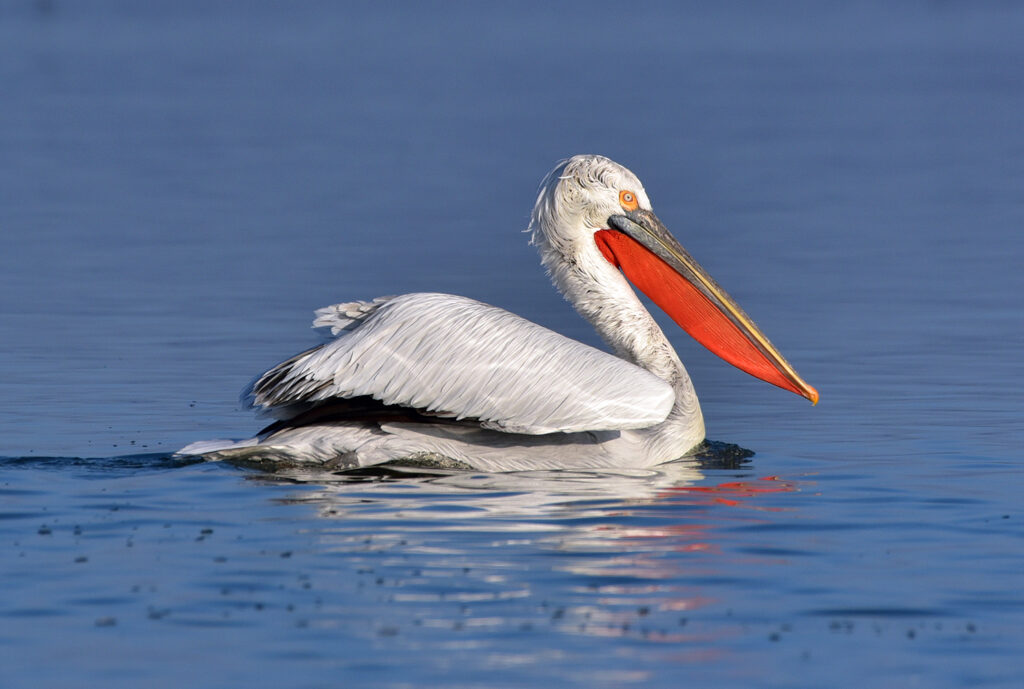
The Pelican Way of LIFE initiative is funded by the European Union’s LIFE Programme. In addition to the LIFE programme, the comeback of the Dalmatian pelican is supported by the Arcadia Fund, the UK based charitable trust of Lisbet Rausing and Peter Baldwin that supports charities and scholarly institutions that preserve cultural heritage and the environment. The camp itself was also supported by Stichting Amfortas, a Dutch family foundation dedicated to supporting Rewilding Europe’s effort to advance rewilding across the continent.
